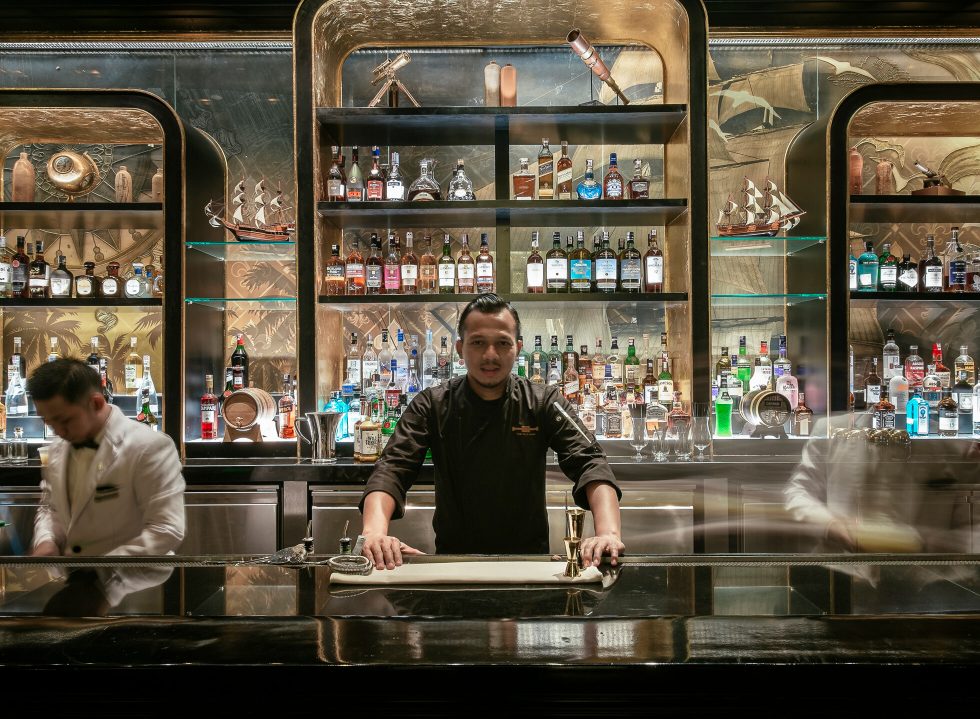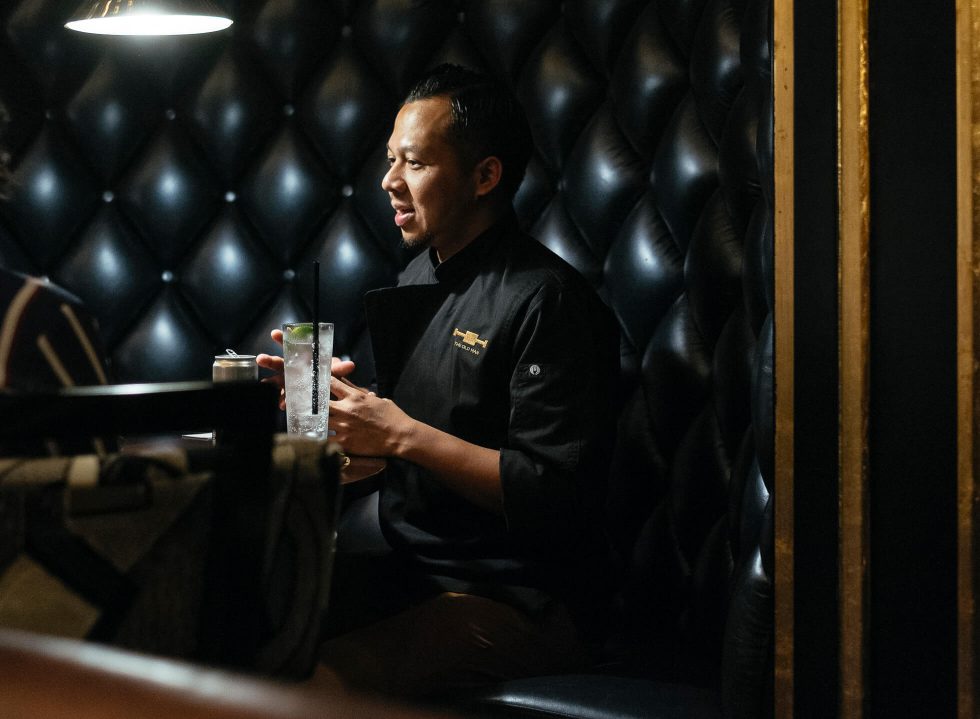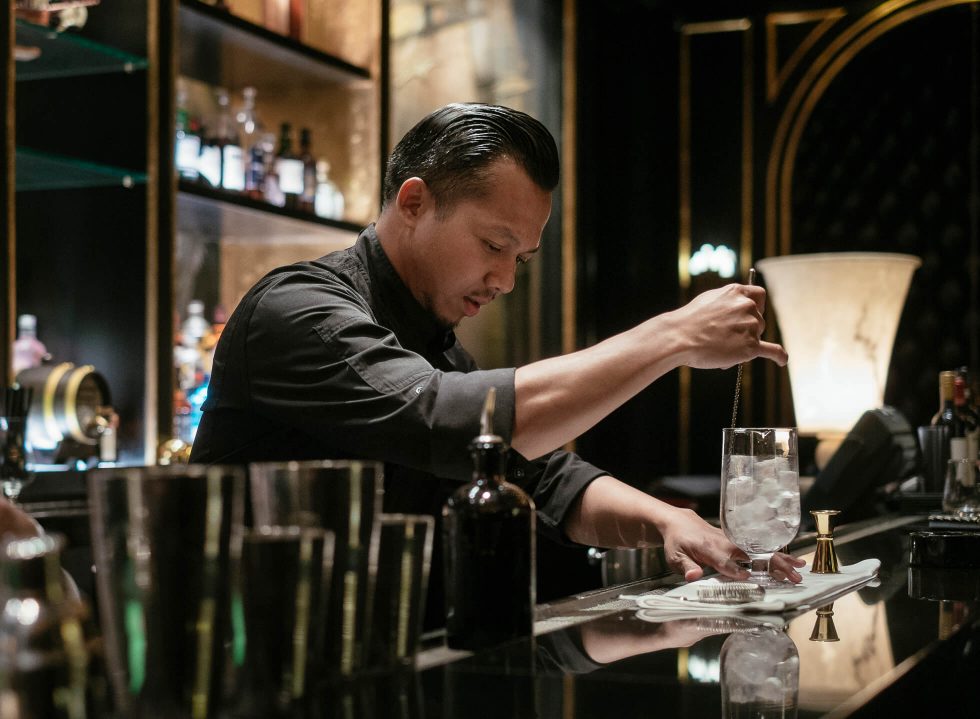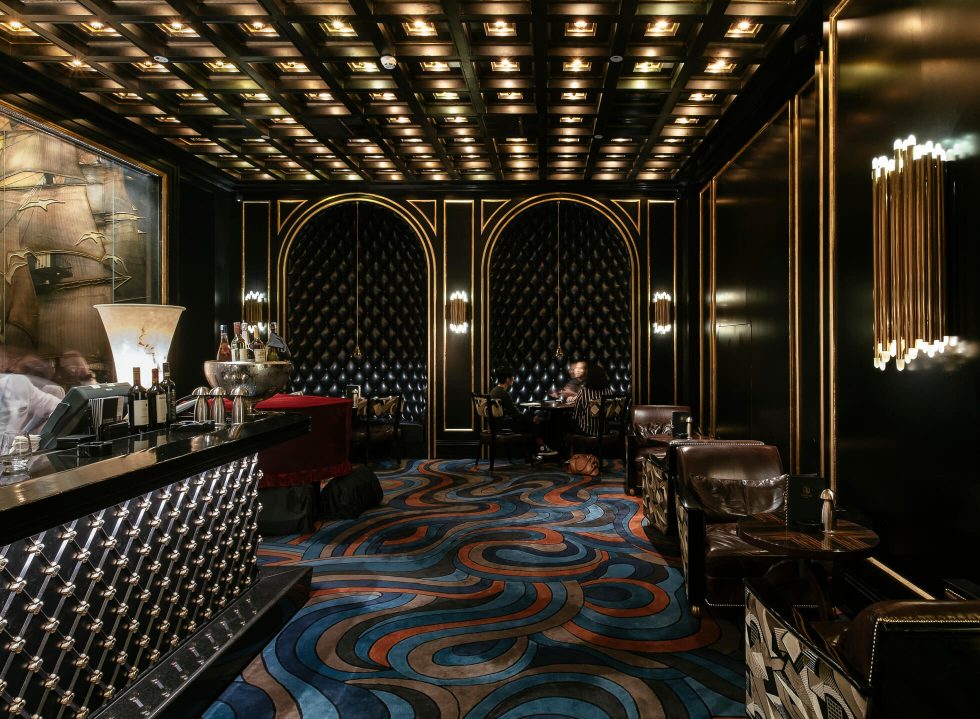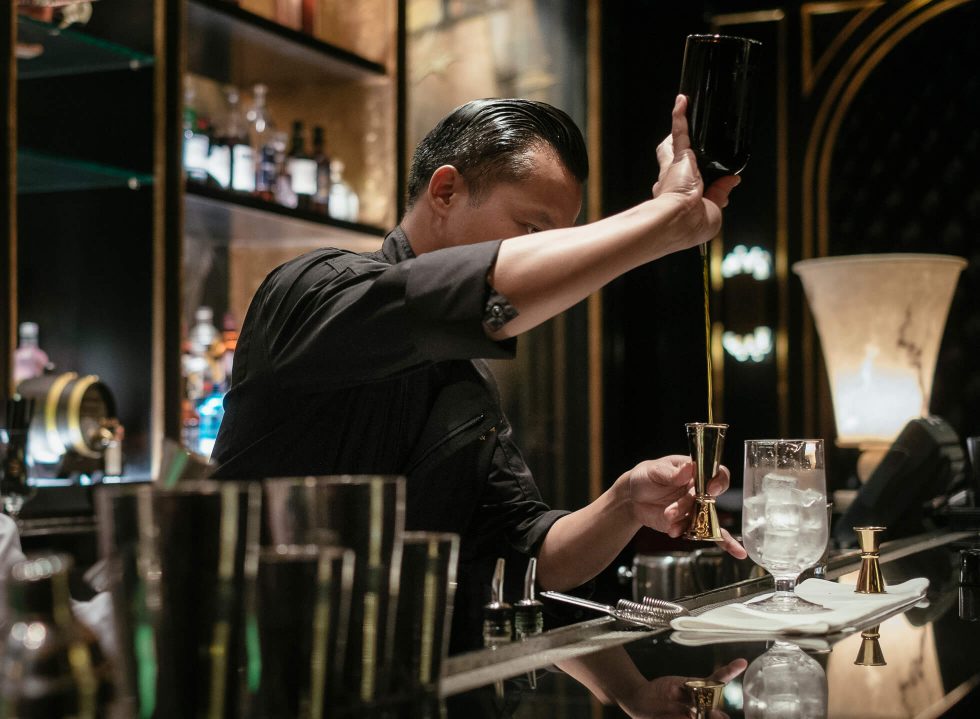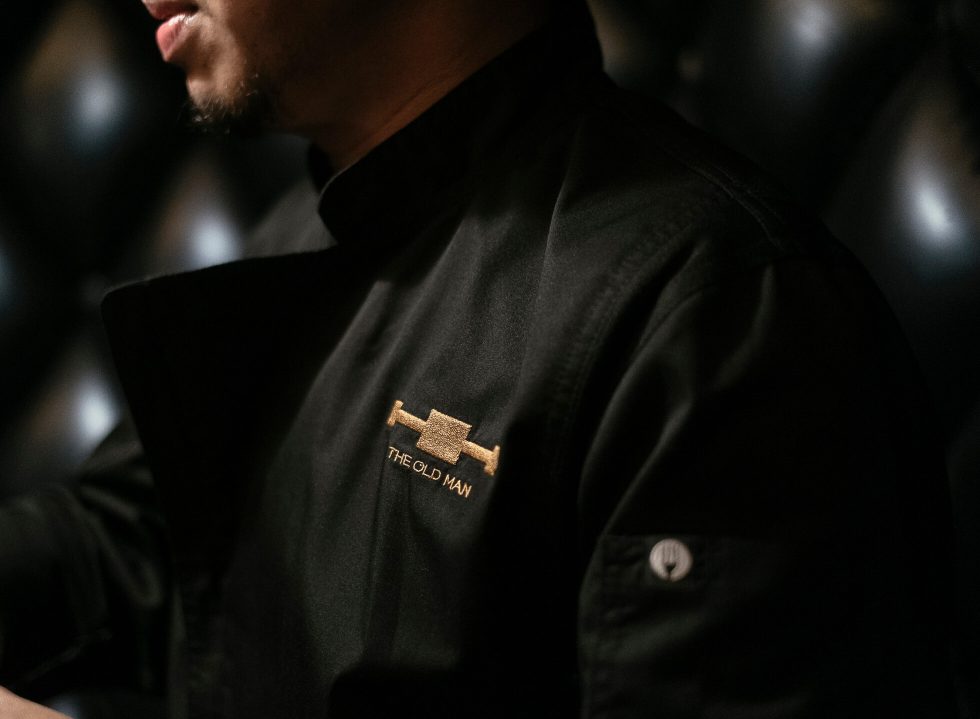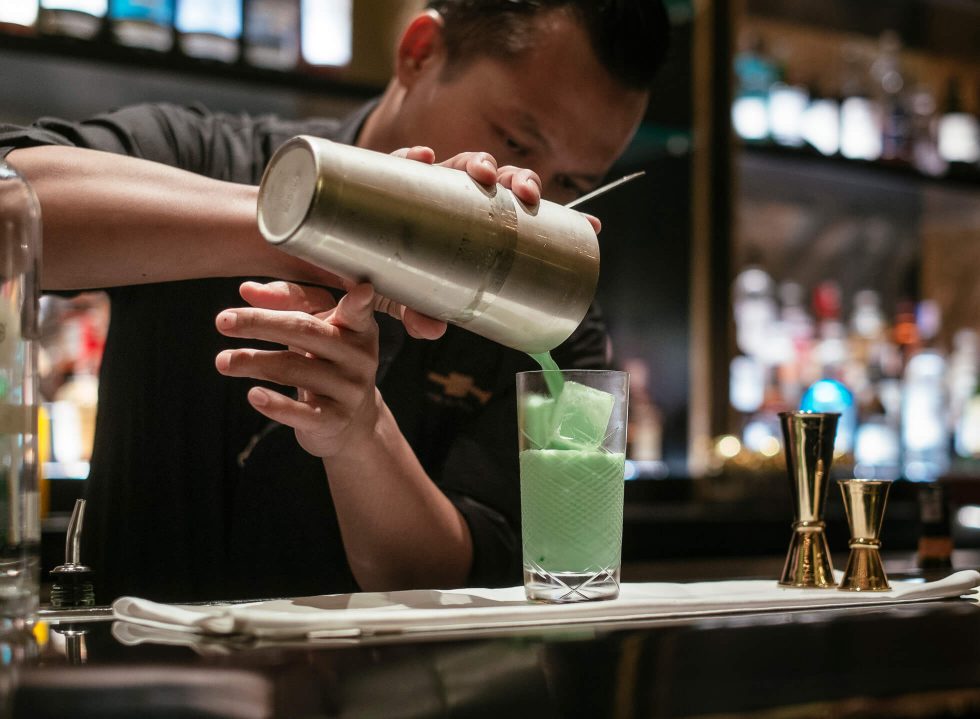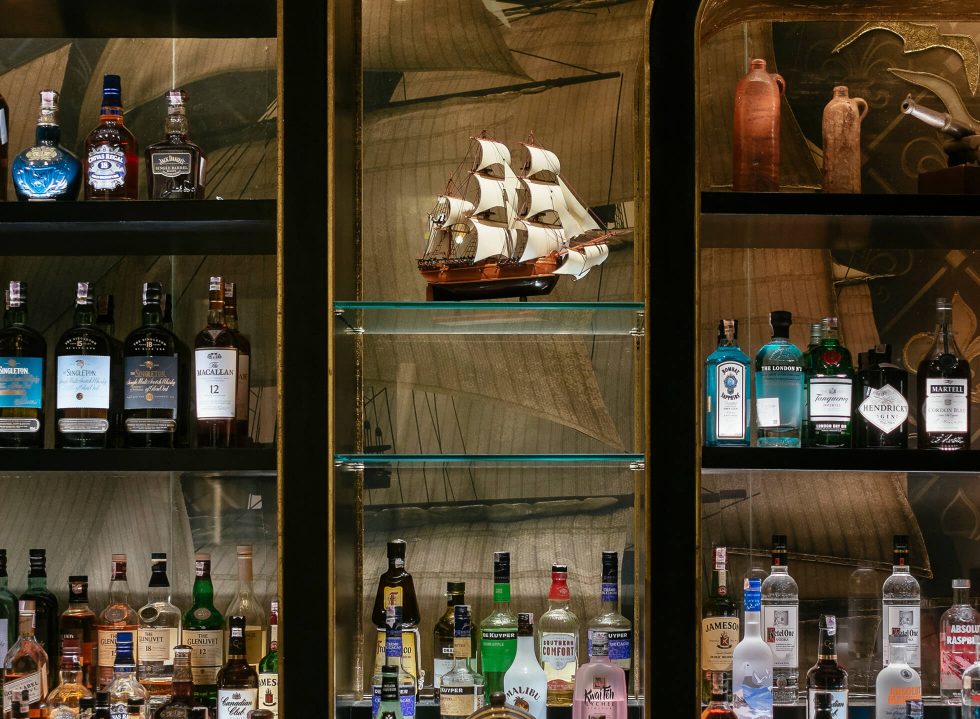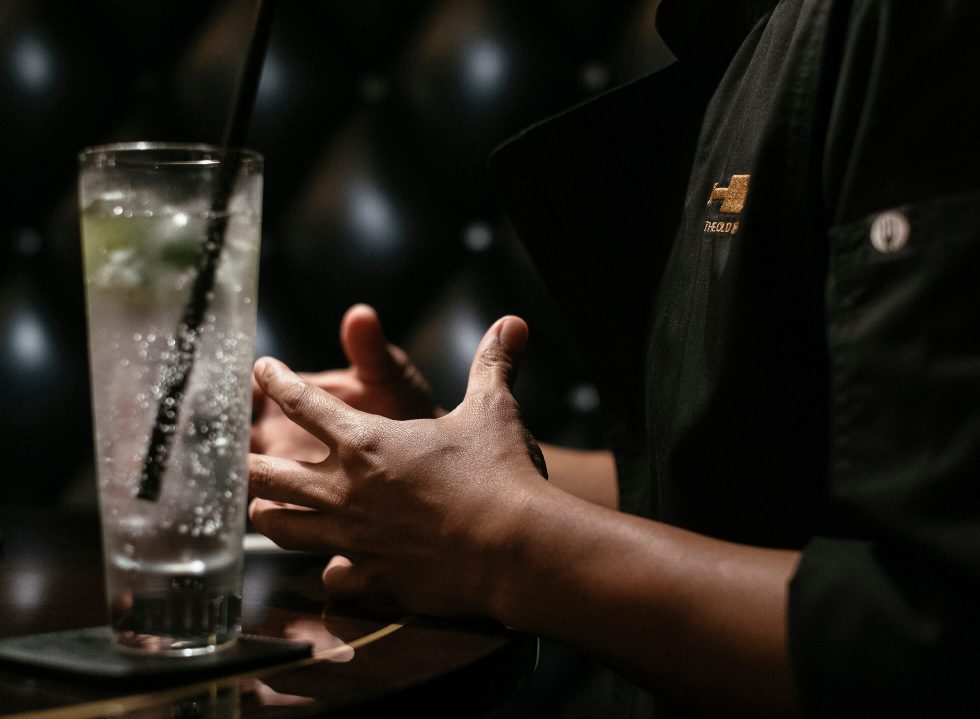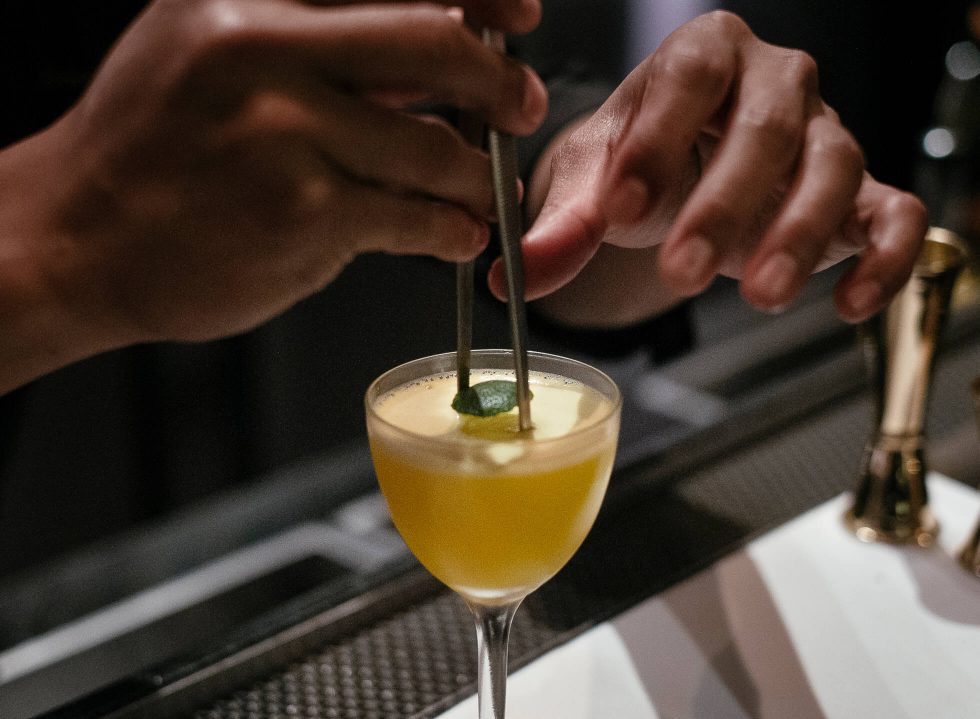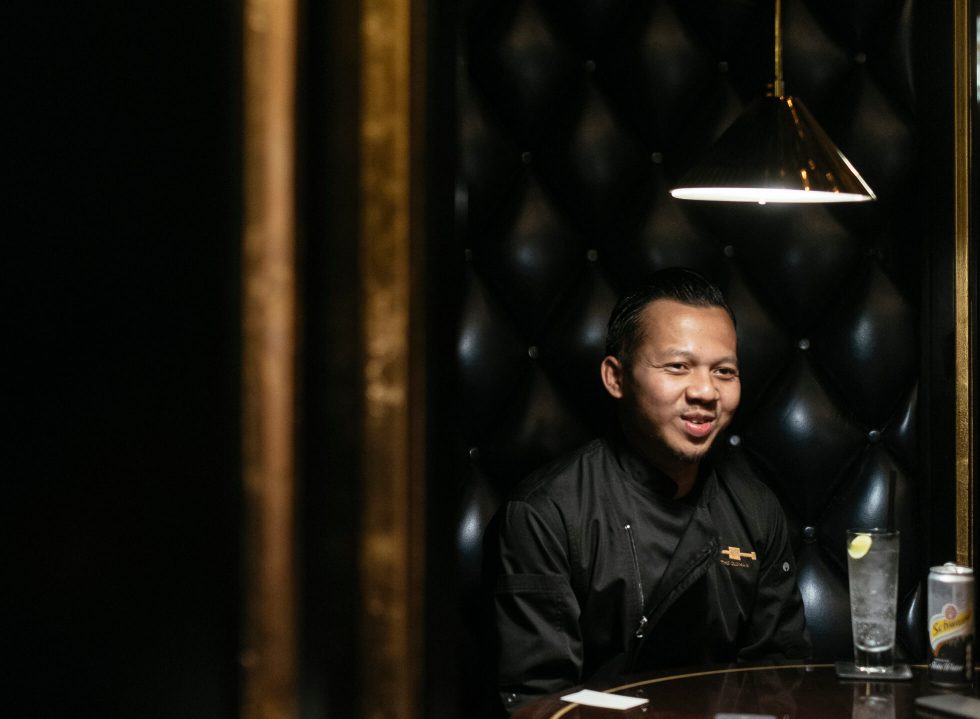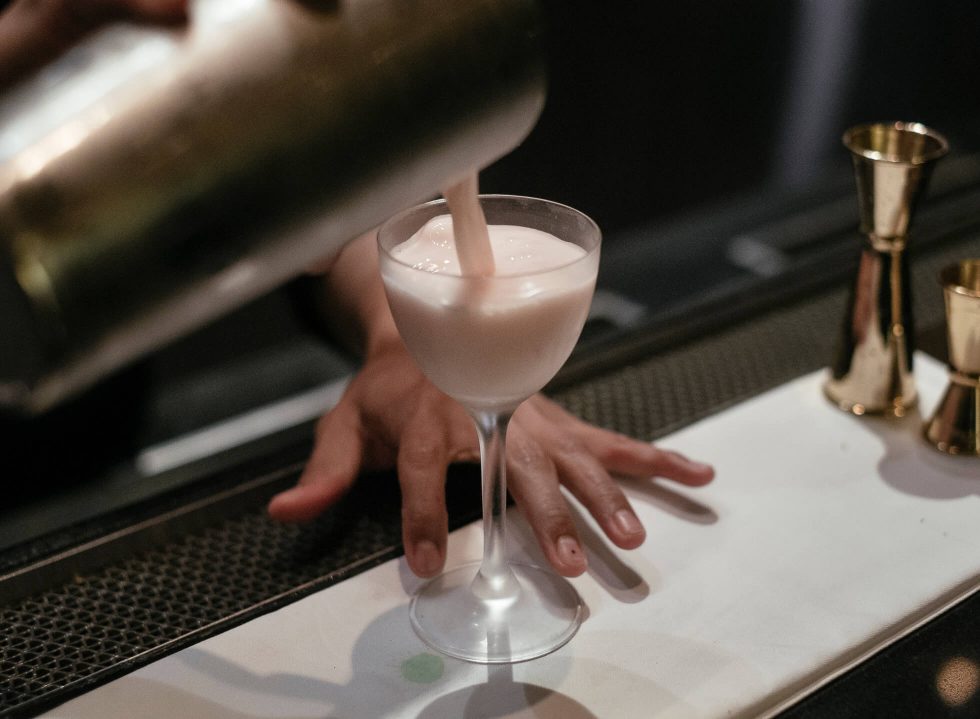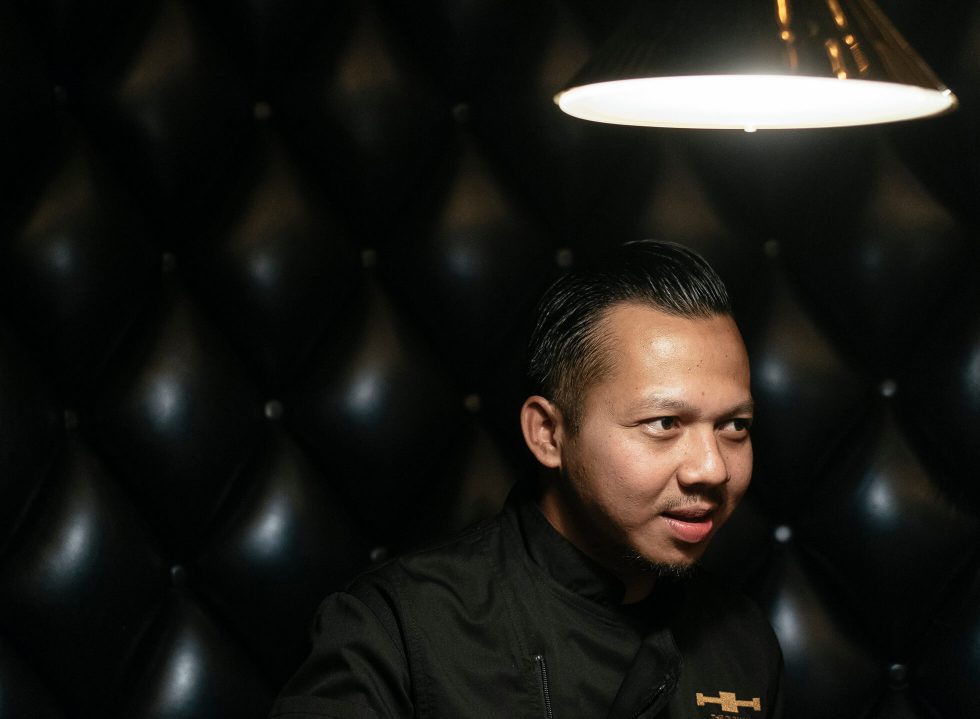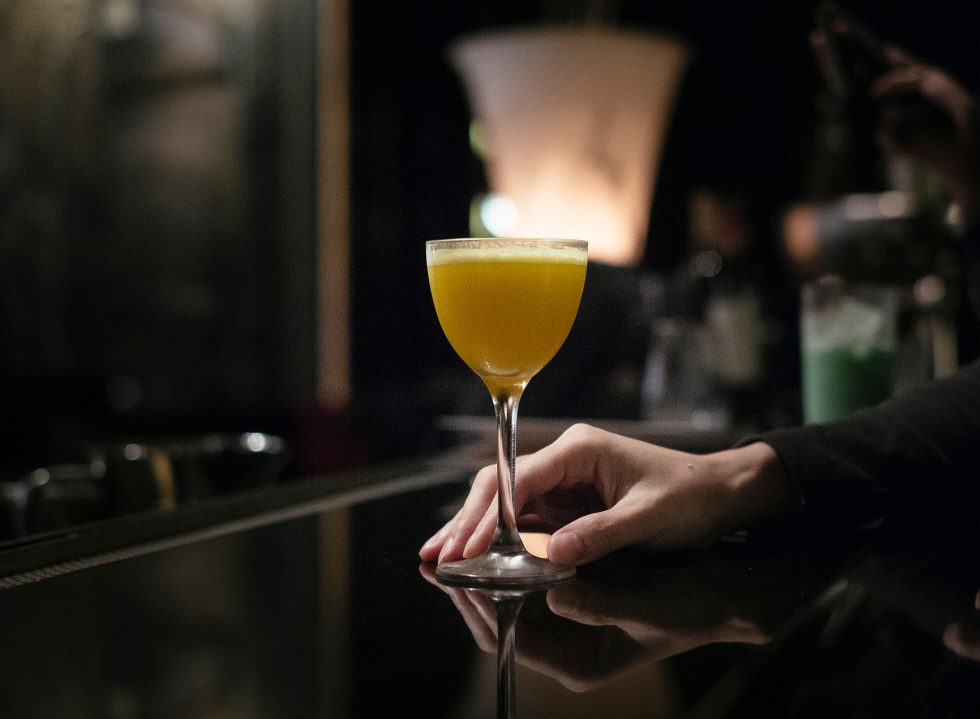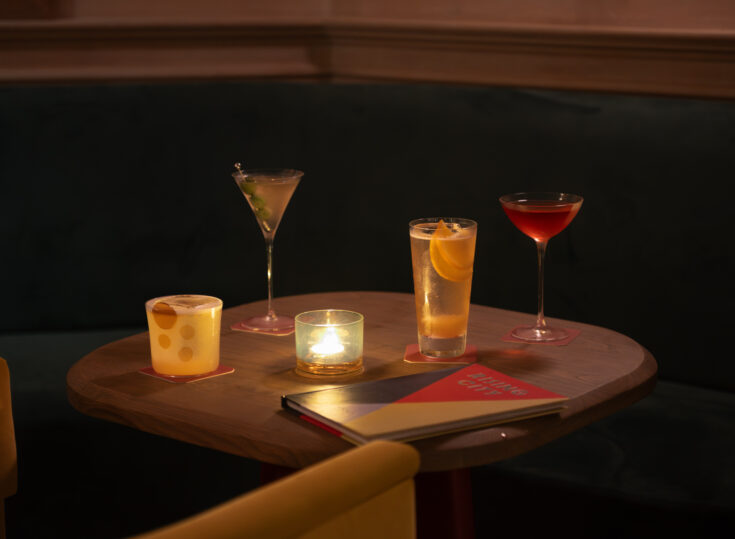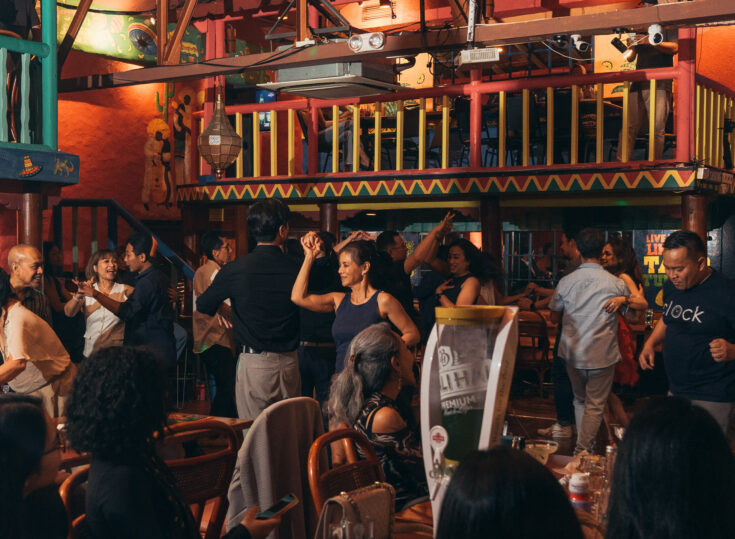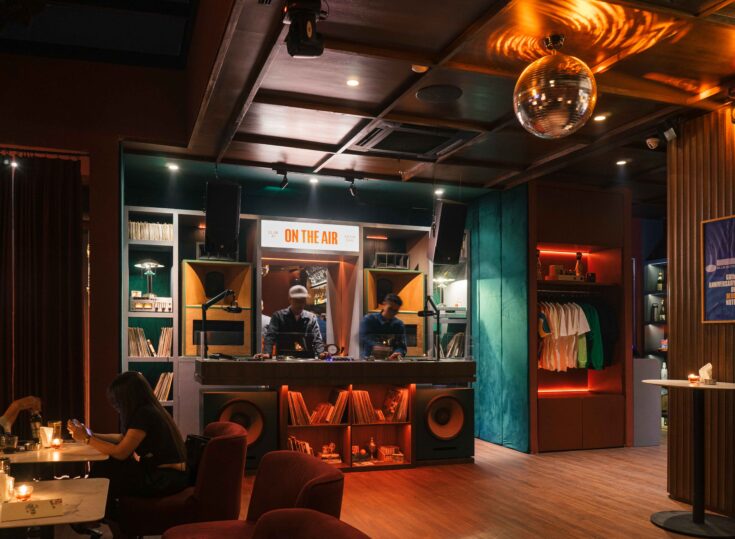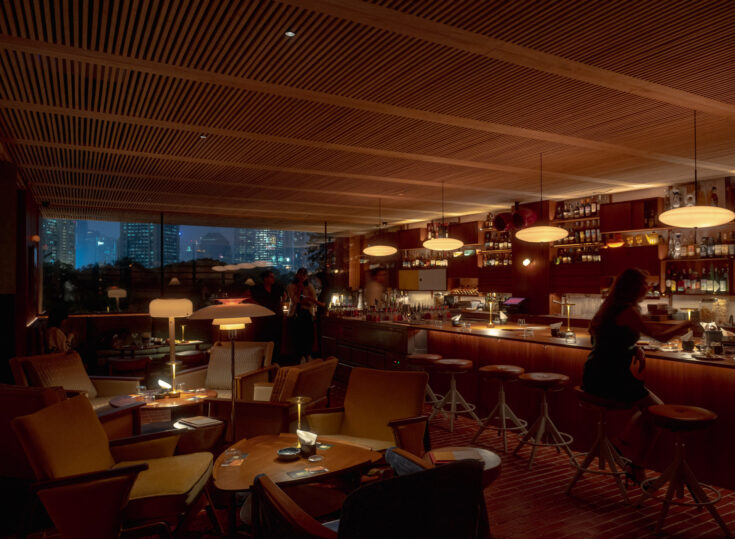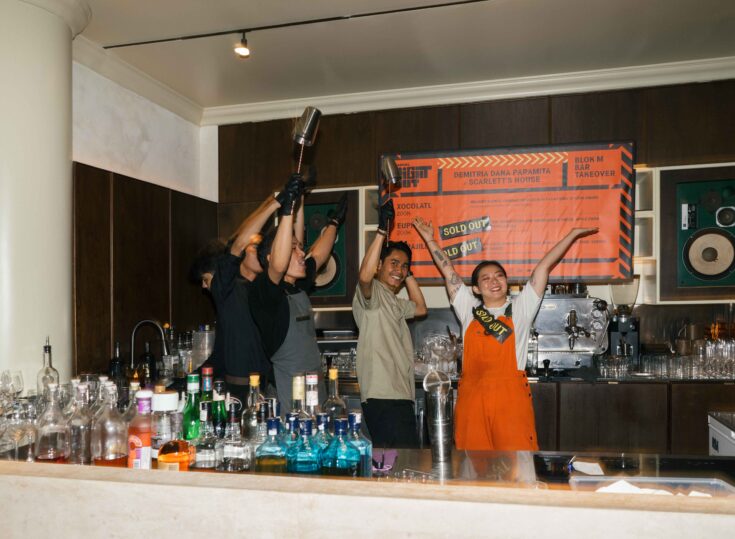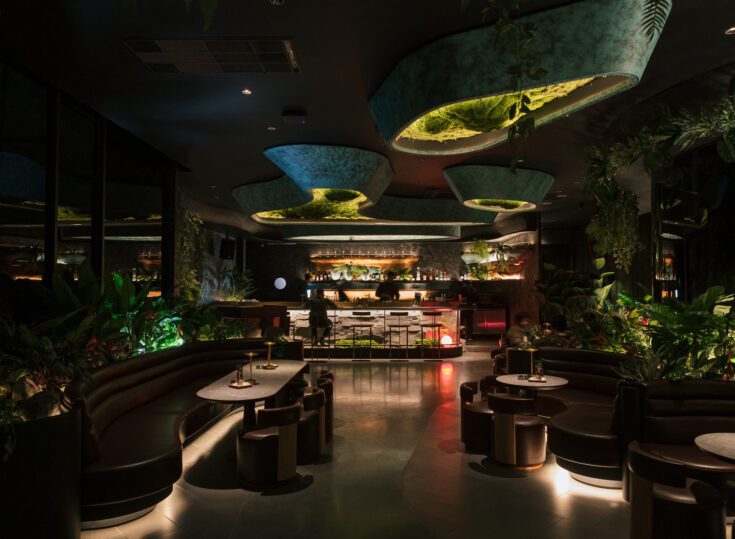The next time you find yourself in Hong Kong, be it for business or pleasure, and in need of a good cocktail after a long exhausting day, you’d do well to visit The Old Man. Superb cocktails aside, this bar also houses a pleasant surprise. The man behind the bar as well as the co-founder of this establishment is fellow countryman and a native of Jakarta, Agung Prabowo.
Time Out Hong Kong describes the bar as “the convivial cocktail haven that Hong Kong needs”. South China Morning Post urges their readers “to get there early if you want to be sure of a seat at the bar”. It is even more impressive if you count the fact that The Old Man has been operating for less than a year. During its first week of opening, the compact bar was packed to the point that Agung had to close early by midnight.
It’s definitely not because he’s the kind to shrink away from responsibility. Far from it. The decision was made because he, along with his partners – James Tamang and Roman Ghale, knows that to run a good bar requires more than just good cocktails. It would have all been for nought without good service, which the three of them were struggling with during that night. Luckily, the customers didn’t take it to heart, especially when everyone was treated to a glass of champagne on the house.
We are tucked in a dim corner of Nautilus Bar in Four Seasons Hotel, where Agung is taking over for two nights. Dressed in a sharp black jacket with mandarin collar and striking The Old Man logo in gold on the left chest, Agung is visibly relaxed as he pours himself a tall glass of Schweppes. Bright eyes and fresh face, you can tell that starting his duty after work hours is as natural as reaching for a glass of orange juice in the morning,
Despite the achievement for The Old Man within such a short time frame, Agung remains modest about it. When I ask him why does he think the bar is such a success, he even turns bashful. “We’re still not there yet you know. We’re still at the ground level. We still have a lot of things to catch up on basically.”
And starting from the ground up is something that Agung knows very well. His first encounter was back in 1998 while working as a part-timer in a restaurant. There, the role of bartender impressed him the most. “As a bartender you create the products, you provide the service, you entertain the guests, you clean up after yourself and then do some transactions and close the bar,” he explains. It is this idea of a one-man show within his own “private island” that provides him the first spark into this profession.
Fast forward to few years later, Agung moved to Hong Kong in 2005 where he landed a job in Landmark Mandarin Oriental’s MO Bar for six years before moving on to Hong Kong’s first speakeasy bar, Lily & Bloom. But it is his stint at Island Shangri-La’s Lobster Bar & Grill that serves as one of his proudest achievements.
Under his supervision, the stuffy hotel bar was transformed into one of the city’s favourites and was listed as the #18 best bar in 2015 by World’s 50 Best Bars. The latter wrote “you’ll be hard pressed to find another to match the service and devotion to classic cocktails that you’ll receive at the Shangri-La’s Lobster Bar & Grill.” And it didn’t just stop there, the review ended with a glowing stamp of approval for Agung: “Expect to see more of the bar industry’s finest pulling up a stool in front of Prabowo when you’re here.”
Such critical accomplishment is perhaps why Agung is less bashful when I ask why Lobster Bar & Grill was such a hit under his supervision. “Lobster is a very old school traditional hotel bar. When I arrived in 2013, I changed the style of the bar, with the support from the management of course. I did so by first changing the mentality of the staff. I’m like, come on guys, don’t give a stiff ‘Good evening, sir’. This is a bar, you have to enjoy it,” he continues. “The cocktail is important but so does the whole experience. It’s about the character. It’s about the people. The personality of the staff.”
It is no surprise then that Agung would rather close his bar early than to suffer at the thought of offering less exceptional service to his guests. A trait that also extends into his character. At times, Agung cuts in on the interview to ask whether I’d like to have a drink first. My order of still water hasn’t arrived since the start of the conversation and I assure him that it’s perfectly fine. But you can tell that it makes him uncomfortable, jittery even.
I try to distract him by asking how does it feel like to run a bar with his two best friends, a subject that lightens him up. “They’re like my brothers. We have different characters and every person has their own strength. Roman is like a lovely guy who can run the floor by himself. All the guests love him so much. He’s a very hospitable person. And then James helps me with things behind the scene, like reminding me of the operation cost for the month. I’m more like the overall, the concept, the idea and then the person making the drinks. Of course James and Roman can make drinks, but 75 per cent of the time, I’m in the bar.”
Those who are familiar with the works of Ernest Hemingway will love the reference to the American author within the bar. Apart from the name of The Old Man itself, which is taken from the famous The Old Man and the Sea, the names of the cocktails are derived from Hemingway books and nicknames, such as The Sun Also Rises and Little Wax Puppy respectively.
But the personality of The Old Man, especially the cocktails, is not lost within the heavy reference itself. Their drinks are also famous for their bold flavours from the inclusion of spices. For example, The Sun Also Rises is made with a combination of intriguing ingredients: coconut-oil-fat-washed applejack, curry leaf-infused gin, sweet vermouth sous-vide pandan leaves and kaffir lime. In Green Hills of Africa, the inclusion of turmeric tamarind gives off the aftertaste of Kunyit Asam jamu.
When you’re miles away from home, it’s definitely a comforting flavour to take in even if it’s in the form of cocktail. Although The Old Man is still relatively new, the bar is surprisingly already popular among Indonesian tourists. “Maybe it’s through word of mouth or maybe they discover it through social media or something. Roman and James once joked that there are so many Indonesians, ‘Is this Indonesian bar or something?’ But I’m happy to see Indonesians in my bar.”
Agung is right when he said that a combination of amiability and smashing cocktails makes a good bar. But what he didn’t realise is, the face of a fellow countryman in a foreign country also rounds off the experience.
